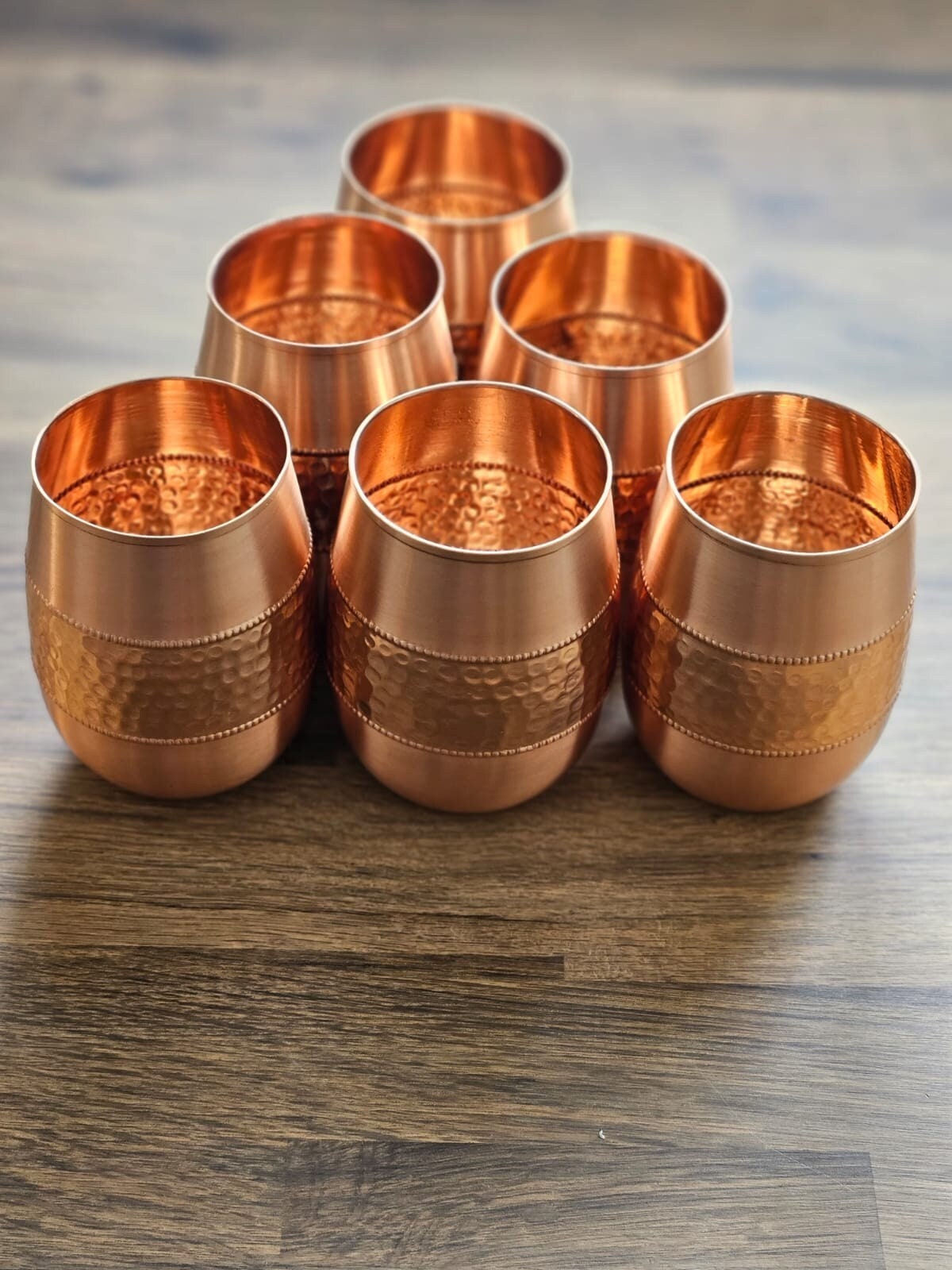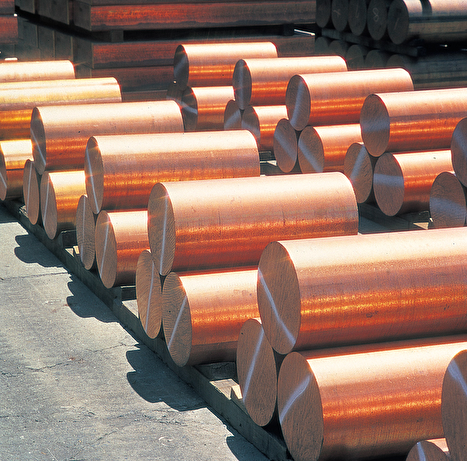Why Copper Products Are Crucial for Electric Applications and Reliable Circuitry
Why Copper Products Are Crucial for Electric Applications and Reliable Circuitry
Blog Article
Exploring the Diverse Applications of Copper Products in Modern Industries
Copper products have actually established themselves as indispensable components throughout a myriad of contemporary markets, mostly due to their impressive conductivity, pliability, and resistance to rust. From enhancing the efficiency of electrical systems to playing an essential role in eco-friendly power technologies, the adaptability of copper appears. Its recyclability positions it as a lasting choice in production and electronics. As markets progressively focus on development and sustainability, the varied applications of copper call for a closer examination, especially regarding their prospective impact on future technical improvements and environmental methods.
Electrical Applications of Copper
Copper is a crucial material in the electric market, making up about 60% of the total demand for non-ferrous steels worldwide - Copper Products. Its remarkable electric conductivity, which is virtually two times that of aluminum, makes it the favored option for a variety of electric applications. From electrical wiring systems in property and industrial buildings to high-voltage power transmission lines, copper guarantees effectiveness and dependability in electrical energy shipment
In enhancement to electrical wiring, copper is integral to the production of electric parts such as generators, transformers, and electric motors. These elements take advantage of copper's thermal conductivity and pliability, crucial for warmth dissipation and efficient performance. Moreover, copper's resistance to deterioration boosts the life-span and longevity of electrical systems, making it a cost-efficient remedy in the long-term.
The development of renewable resource sources, such as solar and wind power, has actually additionally enhanced the need for copper in electrical applications. As sectors change in the direction of sustainable power services, copper's duty becomes much more essential. Generally, the versatility and efficiency attributes of copper strengthen its standing as a foundation product within the electrical industry, driving development and performance across different applications.
Pipes and Piping Solutions
In modern pipes systems, the choice of products significantly affects both capability and long life. Copper has arised as a preferred choice as a result of its special residential or commercial properties, including deterioration resistance and antimicrobial features. These characteristics guarantee that copper piping remains resilient and secure for transferring safe and clean water, a crucial consideration in property and business applications.
One of the vital benefits of copper in pipes is its capacity to withstand high temperatures and pressures, making it appropriate for a range of applications, from warm water systems to home heating and cooling down networks. In addition, copper's adaptability enables much easier installment in complicated piping designs, reducing the danger of leakages and failures.
Another noteworthy advantage is copper's lengthy lifespan, usually exceeding half a century with appropriate maintenance. This long life not just decreases substitute costs but additionally adds to lasting techniques by decreasing waste. Moreover, copper's recyclability aligns with modern ecological standards, promoting a circular economic situation within the plumbing sector.
Copper in Renewable Resource
The Resources adaptability of copper extends beyond pipes applications, playing an important role in the renewable power field. In solar panels, copper is used in photovoltaic or pv cells and wiring, helping with efficient energy conversion and transmission.

Moreover, as the global need for electrical lorries (EVs) rises, copper's role in battery systems and charging facilities becomes also extra substantial. The material's capability to carry out electrical energy effectively is essential to the performance of EV batteries, improving variety and charging speed.
Copper's Duty in Electronic devices
Electronics manufacturing relies heavily on copper's extraordinary residential properties, especially its high electrical conductivity and thermal efficiency. These characteristics make copper an optimal choice for a broad array of digital components, consisting of ports, circuit card, and wiring. The steel's capability to efficiently send electrical signals guarantees marginal energy loss, which is essential in high-performance digital gadgets.
Furthermore, copper's thermal conductivity plays a considerable duty in warm dissipation, protecting delicate components from overheating. This is specifically important in modern electronic devices, where compact styles lead to boosted warmth generation. Copper is additionally favored for its pliability and ductility, allowing it to be quickly shaped into elaborate styles that fulfill the demands of sophisticated digital applications.
With the increase of consumer electronics, telecoms, and electrical cars, the need for copper in the electronic devices industry proceeds to expand. As innovations in innovation advance, copper stays important to attaining greater efficiency and reliability in electronic items. Its recyclability better improves its appeal, as makers look for sustainable services without endangering quality. Thus, Continued copper continues to be a foundation material in the ever-expanding area of electronics.
Innovative Uses in Manufacturing

One noteworthy application remains in additive manufacturing, where copper-based products are utilized in 3D printing procedures. This permits the development of complicated geometries and light-weight elements, specifically in the aerospace and auto industries. In addition, copper's thermal conductivity makes it a suitable choice for warmth exchangers, improving efficiency in industrial cooling systems.
In addition, the increase of clever manufacturing has seen the unification of copper in IoT gadgets, where its conductive capabilities support innovative sensing innovations. In the world of renewable resource, copper is critical in the manufacturing of photovoltaic panels and wind turbines, look at here now assisting in more effective energy conversion and circulation.
As sectors pursue sustainability and advancement, copper's convenience and performance continue to position it as an essential material, driving developments in production and adding to the growth of smarter, a lot more efficient products.
Final Thought
In recap, copper items show remarkable convenience across various modern markets. Copper Products. Their remarkable conductivity improves electric applications, while deterioration resistance guarantees dependability in plumbing. The important function of copper in eco-friendly power and its crucial feature in electronics underscore its significance ahead of time sustainable practices. Additionally, innovative uses in producing highlight copper's flexibility and withstanding value. Jointly, these applications highlight copper's vital payment to technological progress and commercial performance in modern society.
From enhancing the performance of electrical systems to playing a vital function in sustainable energy technologies, the versatility of copper is noticeable. As markets increasingly focus on development and sustainability, the diverse applications of copper warrant a closer exam, especially regarding their prospective impact on future technical improvements and ecological practices.
The development of renewable energy sources, such as solar and wind power, has actually further boosted the demand for copper in electric applications. In general, the adaptability and performance features of copper solidify its standing as a foundation product within the electrical market, driving advancement and effectiveness across numerous applications.
The versatility of copper expands past pipes applications, playing a crucial role in the eco-friendly power sector.
Report this page